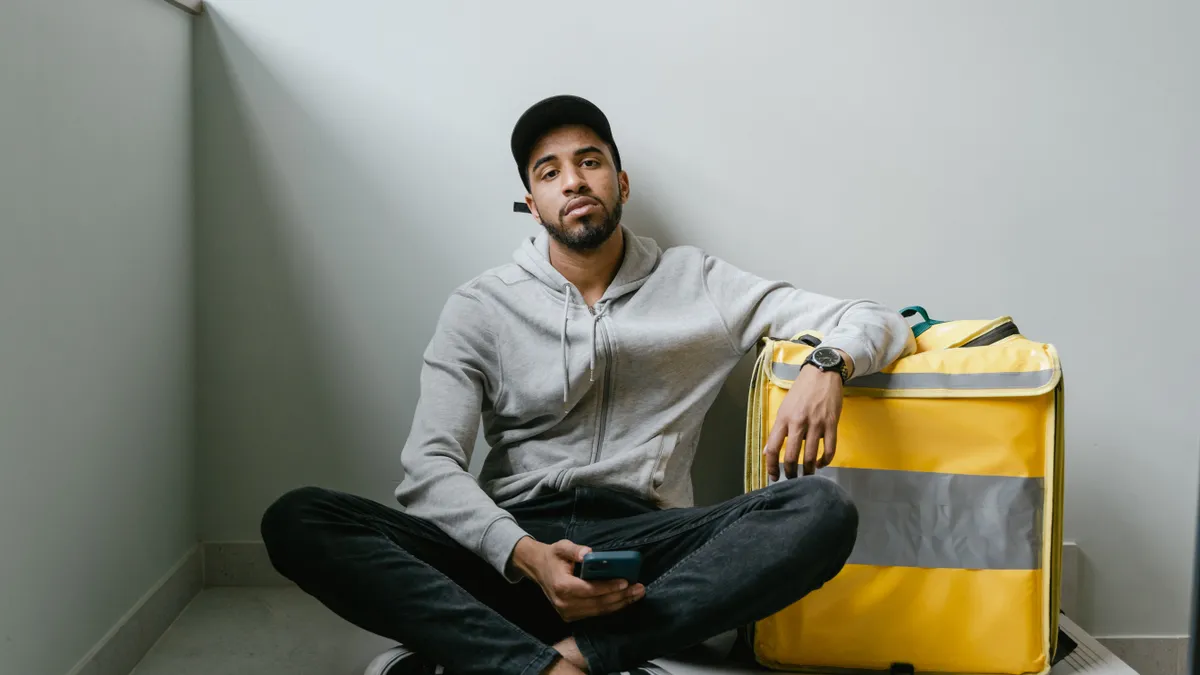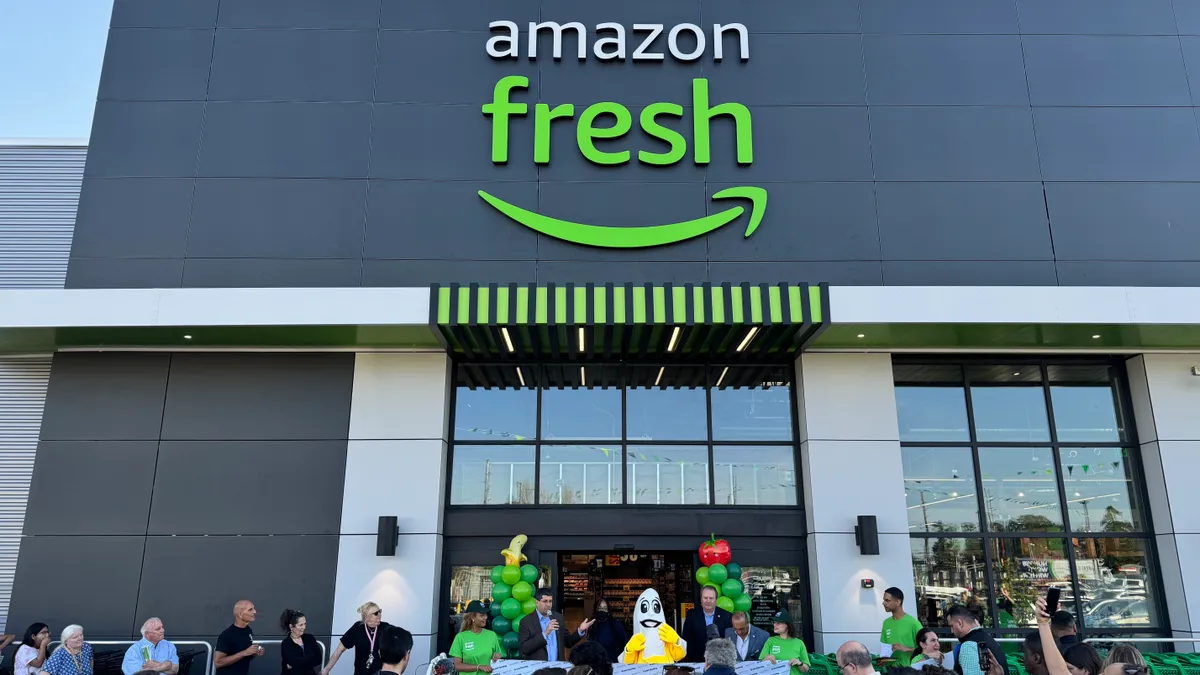The war over delivery driver classification is being fought primarily in California. But Prop 22, Alameda County’s ruling of it as unconstitutional and subsequent appeals have implications extending beyond the Golden State.
A quick refresher: Proposition 22, also known as the App-Based Drivers as Contractors and Labor Policies Initiative, was on the ballot for California voters during the 2020 elections. The objective was to label app-based workers as independent contractors, not employees. Spearheaded by Uber and Lyft, rideshare and food delivery companies reportedly spent $205 million encouraging Californians to vote for Prop 22. It passed with 58% of votes in November 2020; however, Alameda County Superior Court Judge Frank Roesch ruled in August 2021 that Prop 22 was unconstitutional.
This ruling reignited fervor around worker misclassification for those in the ride-share and delivery industries, and beyond. To determine whether someone is an employee or independent contractor, the National Conference of State Legislatures says "the simplest standard is that if an employer has the right to control the work, the worker is an employee, not an independent contractor."
Additionally, some standards ask whether an employer exercises "behavioral and financial control" over the worker.
"Factors include the amount of direction provided over the means and results of the work, the possibility of profit or loss for the worker, and whether the worker is free to provide similar services to other businesses," the NCSL adds.
Many workers’ rights advocates and employment experts believe that the passing and upholding of Prop 22 is a ploy to withhold benefits from workers. As stated by the NCSL, misclassification can happen inadvertently. However, "a big incentive" in misclassifying workers is trimming overhead. "It’s estimated that a business can save 30% of their labor costs by using independent contractors rather than employees," according to NCSL.
Those in favor of Prop 22, on the other hand, frame their advocacy as a respectful nod to the flexibility and freedom that gig work provides. At the time, the Yes on 22 Coalition (whose members include DoorDash, Instacart, Postmates, Lyft and Uber) highlighted the pros of Prop 22 in a way that clearly resonated amid the coronavirus pandemic. Prop 22 was framed as a means to "preserve access to earning opportunities for struggling Californians needing to supplement lost income or jobs."
Some said Prop 22 would "protect the availability" of food and medicine delivery for those in need and quarantining. Yes on 22 also underscored that app-based ride-share services were key for essential workers. Along with boasting driver-specific healthcare benefits and illness insurance, Yes on 22 materials lauded the measure as a move for California’s greater good.
What HR professionals must keep in mind about Prop 22 (and similar legislation) is that while many workers have no qualms with app-based labor, advocates say many are being exploited by current standard operating procedures. As Rafael Espinal, executive director of Freelancers Union, said: Misclassification is harmful when the lines between employee-level work and contractor-level work are often blurred.
"Misclassification is a huge issue across all different types of industries, not only for app-based workers. Oftentimes, I hear from folks who are being treated as if they’re full-time employees, but are not receiving the benefits that full-time employees receive," Espinal said.
"Professional gig workers and freelancers, whose intention is to be free from the employment system? They have that understanding. They have full autonomy over how their work is performed," he explained. "But the reason Prop 22 and this misclassification issue is so important is because there are countless people who are being taken advantage of by employers."
Whether it’s intentional or unintentional, requiring employee-level work from an independent contractor but not compensating them in the same way runs afoul of labor laws. Moreover, this situation is complicated further when factoring in race. In a 2018 survey by Marketplace-Edison Research, 31% of Hispanic respondents said they earn money through the gig economy. Ditto 27% of African-American respondents, compared to 21% of White or other respondents.
And while a flexible schedule can be a selling point to some, many workers, especially people of color, don’t simply "choose" app-based work for its flexibility. In the Marketplace-Edison survey, White respondents were the least likely to engage in gig work as their primary job. Meanwhile, 47% of Hispanic respondents and 55% of African American respondents said that their gig work is their primary source of income.
"There is a growing consensus among people who look closely at this industry, that the business model is not just unfair towards workers, but that it raises clear racial justice issues," said Rebecca Smith, director of the Work Structures Portfolio at the National Employment Labor Project. Smith’s research at NELP focuses on the corporate use of temp staffing arrangements, subcontracting practices and self-employed folks, so-called "1099s."
Acknowledging that people of color are overrepresented in gig work, Smith added that "these business practices hearken back to racial exclusions from core New Deal labor protections. I think it's no secret that the Southern Democrats' support for New Deal labor legislation was contingent on excluding Black domestic workers and Black farm workers from labor protections. Why would we repeat that history? Why [else] would we decide as a country to create a new second class of workers who are primarily people of color?"
Considering the dearth of substantial benefits for gig workers and the lack of pay stability, preventing app-based drivers from achieving employee status may pose racial equity problems.
To reduce harm across the board, HR professionals should get clear on the treatment company contractors are entitled to under state and federal laws. "Independent contractors are not protected by most state and federal employment laws, including the Fair Labor Standards Act," the NCSL’s misclassification resource states. "They have no workers' compensation coverage if they are injured on the job and are not entitled to unemployment benefits should they lose their job."
"I'd say an HR professional needs to be very clear. Not on how the companies treat workers, but [on] what the law says," Smith told HR Dive, whether that’s the worker’s lack of status as an employee or whether "tests of employee status" shake out for said worker. She also added that city legislation may be different from state legislation, so employers should be mindful of that as well.
"New York and Seattle and Philadelphia and some other cities do have very specific legislation that enacts pay standards or paid sick leave or other rights clearly covering these workers," Smith said. "I think cities take that approach because it's perhaps a more direct way of ensuring these workers have rights."
And as outlined by the U.S. Department of Labor, employees miss out on crucial benefits due to misclassification, including the right to minimum wage, overtime pay, some anti-discrimination and anti-retaliation protections, the availability of unemployment insurance and job-protected family and medical leave.
At the end of the day, the war for or against Prop 22 may not be about flexibility, but about worker well-being instead.





















